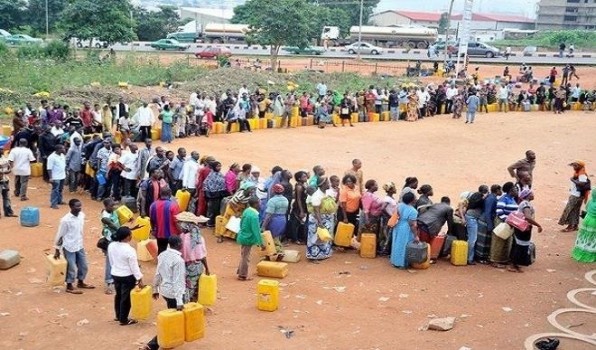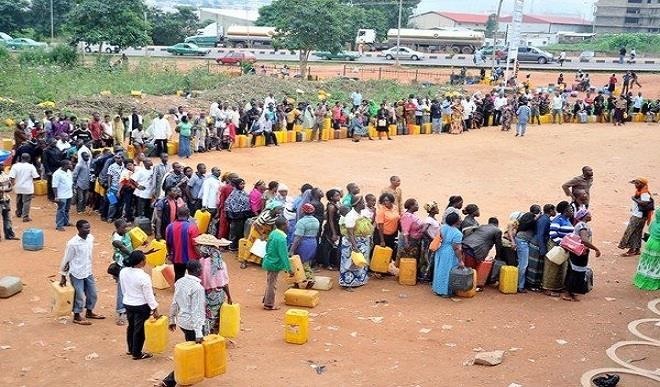 As from 1st January 2016, the government stopped paying subsidy to oil marketers for the importation of petrol and household kerosene. As a result, the official price of ‘household kerosene’ was increased from N50 a litre to N83 a litre.
As from 1st January 2016, the government stopped paying subsidy to oil marketers for the importation of petrol and household kerosene. As a result, the official price of ‘household kerosene’ was increased from N50 a litre to N83 a litre.
Even when the official price was N50a litre, only NNPC retail outlets sold it at that price. Long queues to buy kerosene at the official price were regularly seen. Many people spent days on end queuing or had to bribe the petrol station attendants. Most other users regularly bought keor for up to N150 per litre from neighbourhood retailers.
The rise in kerosene’s official price led to an increase in the open market price. This is causing ripples among the masses as the government is inflicting more pains on them. The Bureau of Statistics says an average Nigerian household spends about N500 daily on food, but half of this is spent on kerosene. So the huge hike in the price of kero is having a massive impact on many poor families, especially in urban areas.
The only realistic alternative to expensive kero, at least for the poor, is charcoal or firewood. These were already the top sources of household energy. Nearly three quarters of rural and poor urban households were using the traditional ‘three-stone fire’. According to the World Health Organization, smoke from these fires causes 95,000 deaths annually, ranking as the nation’s largest killer after malaria and HIV/AIDS. These deaths will increase with the kero price hike.
The price hike will also lead to the cutting down of more trees. This is bad news for the forests and the environment generally – contributing to global warming. Nigeria’s forest cover has already dropped far below the 25 per cent level recommended by the Food and Agriculture Organisation, FAO.
In the last few years the government tried to introduce other options such as the clean cook stove. More efficient charcoal stoves could save 80% of the trees, but these are expensive and so not popular or affordable for most poor people.
Experts say that liquid petroleum gas (LPG) could be another option. The gas being flared and causing environmental pollution in the Niger Delta could be converted for domestic use. But this will require proper subsidies to ensure that this is a practical option for most families.
There are huge health and environmental benefits for families switching from charcoal or wood to kerosene or gas. But this needs government subsidies to make these affordable for most families. At the moment the populace rightly perceives gas as the fuel of the rich rich.
The Buhari government claims it wants to help the popular masses, but the ending of subsidies on kerosene and the failure to control gas flaring in the Niger Delta is having a terrible impact. If the government is serious about helping the poor and reducing climate change then it has to take action to re-introduce subsidies for kerosene. It also has to force the oil companies to convert gas for domestic use and make the stoves and gas cylinders available at affordable prices for the poor.
– Drew Povey









